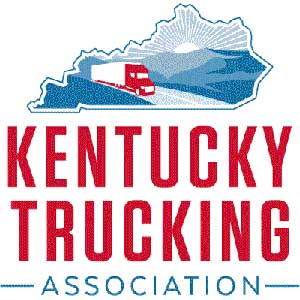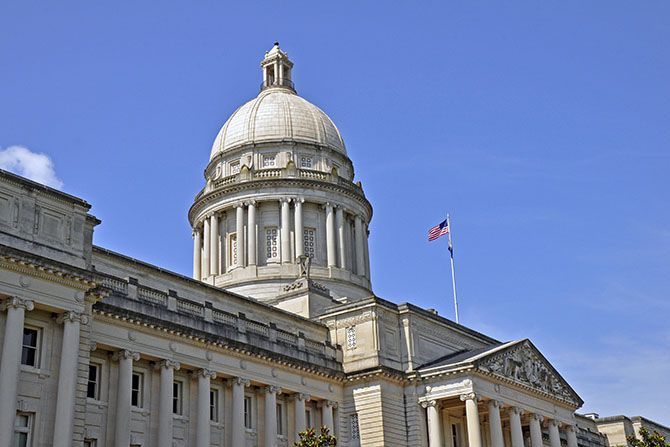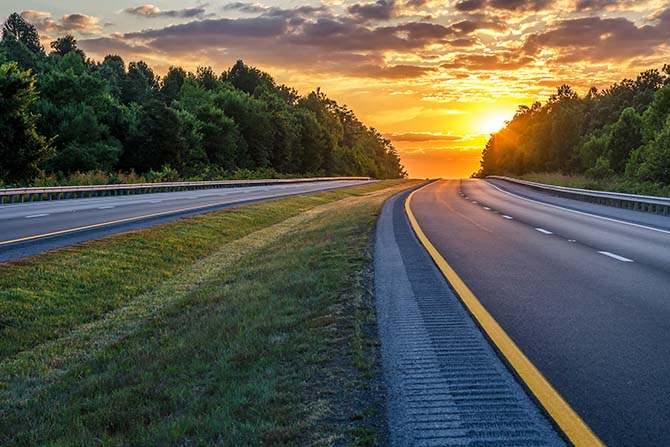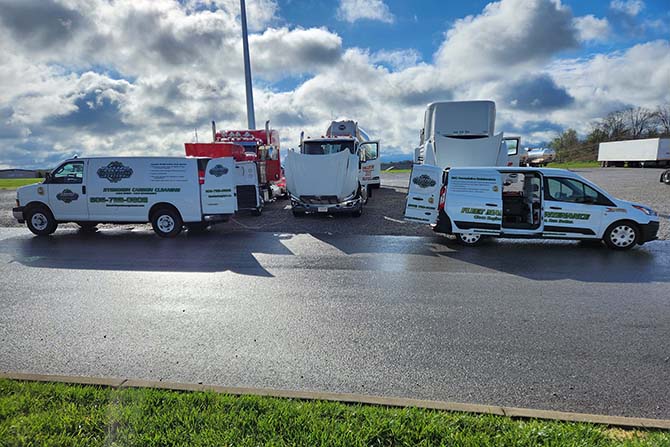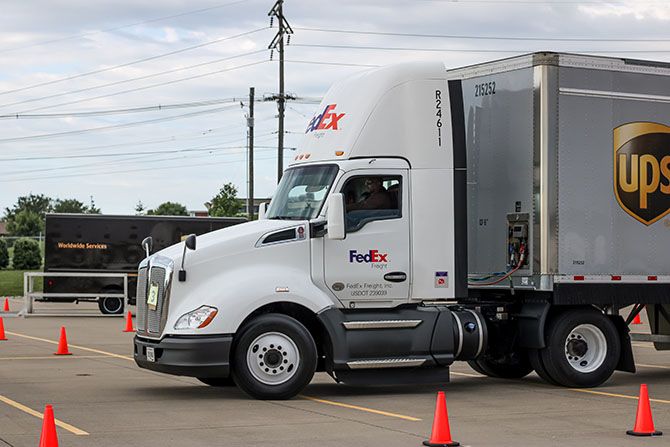SB 107 virtually rose from the dead in the final hours of the session, and became an expansive enactment that affects the trucking industry. The bill had lingered in the House Appropriations & Revenue Committee since March 15, with no action taken. Then, a committee substitute was approved by the House A & R Committee on April 15, and quickly passed in both the House and the Senate. Elements of the bill are:
- Registration fee of $30 paid to the County Clerk for IRP registration of vehicles with gross weight of 44,000 lbs. or greater is repealed. Registration fee collected on those commercial vehicles by the Transportation Cabinet will be increased by $30, and that amount will be passed on to the County Clerk where the vehicle is situated.
- Tractor trailers will be prohibited from running in the left-most lane of limited access highways except “when traffic conditions exist which would prohibit the safe use of the right or center lanes.”
- Towing company failing to post current rate sheet will be removed from the state police log and local law enforcement logs for six months for first violation and one year for any subsequent violations.
- Commercial vehicles exceeding maximum weight allowances will be allowed the federal tolerance increased weight of 400 lbs.
- Transportation Cabinet will be required to issue administrative regulations on permits for transporting overweight non-divisible loads, over-dimensional loads and other special permits.
- Limits established on farm permit fees.
- Work zone fines increased, minimum fine $500, maximum fine $10,000 and possible misdemeanor charge if the violator causes injury to a worker.
- State police pilot project for driver licensing skills testing.
Original SB 107 included a provision that would allow fire departments responding to emergencies to bill nonmembers of the fire department up to $1,000 without submitting a written itemized claim. Trucking companies and their insurance carriers would have to pay the increase, if it had passed. That provision was deleted in the Senate before the bill was amended by the House Committee Substitute. Maximum fee without itemized statement will remain $500.
Other transportation-relate bills that passed during the session include:
- SB 29, Auto glass claims practices. The bill was signed by the governor and became law on April 2.
- SB 125, Off highway vehicle pilot project expanded and will continue until July 1, 2027. The bill was signed by the governor and became law on March 29.
- SB 162, Motor vehicle accident reports will not be subject to open records law. Local law enforcement agencies may retain a copy of a report, but are not required to, after submitting the report to KSP. The bill was signed by the governor on March 29.
- SB 199, Transportation technical changes, including vehicle licensing procedure, CDL training and licensing; $5 fee may be charged for issuing personal ID; clarifies that gross vehicle weight rating for commercial vehicles includes weight of fuel, cargo and passengers; allows Department of Revenue to adopt a used vehicle valuation guide (other than NADA). The bill was signed by the governor on April 9, and becomes effective Jan. 1, 2025.
- HB 5, Comprehensive bill on crimes and punishment, imposes penalties for sleeping in a vehicle on roadsides or at unauthorized places, unless the sleep time is less than 12 hours. HB 5 was vetoed by the governor. The veto was overridden.
- HB 7, Authorizes autonomous vehicles without a human driver in the vehicle for use on state roads. The bill was amended to require that a CDL driver must be in a vehicle with gross vehicle weight 62,000 plus pounds until July 31, 2026. Platooning with a driver in only the lead vehicle becomes effective Aug. 1, 2026. HB 7 was vetoed by the governor and his veto was overridden.
- HB 43, Public hearing required on changes proposed by fire protection services that may downgrade fire service rating. The bill was signed by the governor on April 5.
- HB 167, Towing company reporting of fee schedule requirements and penalties for failure to post. This provision was also passed in SB 109. HB 167 was signed by the governor on April 4.
- HB 265, Transportation Cabinet Biennial Budget for the two fiscal years beginning July 1, 2024, appropriation is $7,156,155,300.
- HB 266, Biennial Highway Construction Plan. State and Federal funds appropriated for road and bridge construction and maintenance $5,797,564,395. Gov. Beshear signed the bill on April 9.
- HB 592, Dealer compensation from OEM or other manufacturer shall not be less than cost of parts or service. This bill became law without the governor’s signature.
All bills enacted by the 2024 General Assembly become effective ninety day after the session ended. That effective date will be July 14, 2024, except for bills enacted with a different effective date.
Several bills we were supporting or opposing did not pass. These include:
- SB 148, Third-party litigation funding companies to be licensed by Banking Commissioner for nonrecourse advances up to $500,000 max at 36% annual interest plus $5,000 service charge. The bill was assigned to the Senate Banking and Insurance Committee on Feb. 1. We succeeded in killing it.
- SB 215, Prohibit Transportation Cabinet or any other state or local agency from enforcing vehicle emission standards. The bill passed in the Senate 32-6 on March 5, and was assigned to the House Transportation Committee on March 15. The bill did not get to the House floor for a vote.
- HB 45, Automated license plate reader and aerial surveillance use. Digital fake transmissions prohibited. The bill was reported favorably by the House Judiciary Committee on Feb. 16, passed by the full House on Feb. 27, and was assigned to the Senate Transportation Committee on March 7. It died there.
- HB 356, Fire departments would be allowed to charge up to $3,500 (now $500) nonitemized to a nonmember/nonsubscriber for making an emergency run to an accident scene. The bill as written would significantly increase fees paid by trucking companies to fire departments for working traffic accidents because the departments would be allowed to charge up to $3,500 without any itemized accounting of expenses. This bill never got a committee hearing.
- HB 620, Hand-held cell phones/electronics devices prohibited while operating a motor vehicle. This bill did not get a committee vote or hearing during the 2024 General Assembly. Maybe next year.



